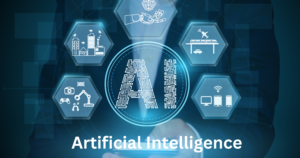Which case would benefit from explainable artificial intelligence (AI) principles? A case where a physician relies on an AI-driven system for diagnosis is one that would find value in the principles of Explainable Artificial Intelligence.
As artificial intelligence (AI) becomes more prevalent in our society, it is essential to understand explainable AI principles. Explainable AI refers to a machine learning model or system’s ability to explain its decisions and actions.
This allows humans to understand the reasoning behind these decisions and helps build trust and transparency in AI systems. This article will explore which case would benefit from explainable artificial intelligence (AI) principles.
Transparency in Decision Making
AI systems are increasingly used to make critical decisions affecting people’s lives, such as loan approvals, medical diagnoses, and job applications.
However, these systems can be complex and challenging for the average person to understand.
This lack of transparency can lead to distrust of AI and skepticism about its decision-making process.
Explainable AI addresses this issue by explaining how an AI system arrived at a particular decision or recommendation.
This is especially critical in high-stakes situations where human lives or livelihoods are at stake.
By understanding the reasoning behind AI decisions, individuals can have more confidence and trust in the system’s capabilities.

Improving Accountability
Which case would benefit from explainable artificial intelligence (AI) principles? There is a question among people about which case would benefit from explainable artificial intelligence (AI) principles. In addition to building trust, explainable AI also improves accountability.
With traditional AI systems, it can be challenging to determine who is responsible for errors or biases in the decision-making process.
Explainable AI provides a transparent and traceable record of how a decision was made, making it easier to identify any issues and hold those responsible accountable.
For example, in the case of a loan application rejection, an individual can request an explanation for the decision and understand which factors led to their sacrifice.
This level of transparency also ensures that AI systems are not biased or discriminatory, allowing for easier identification and rectification of any biases in the system.

Fostering Better Human-AI Collaboration
Explainable AI can also improve collaboration between humans and machines.
AI systems can handle more complex tasks and make decisions beyond human comprehension as they become more advanced.
However, humans must still understand and trust these decisions for effective collaboration.
Explainable AI bridges humans and machines by explaining complex decisions and allowing humans to intervene or provide feedback when necessary.
This improves the accuracy and efficiency of AI systems and ensures that humans retain control over critical decision-making processes.
Applications in Critical Decision-Making
In addition to building trust, accountability, and collaboration, explainable AI can significantly benefit critical decision-making processes.
For example, in the medical field, AI systems are used with diagnoses and treatment plans.
However, for these systems to be effective, doctors must understand how the AI arrived at its recommendations.
Explainable AI can provide doctors with explanations for the AI’s decision, allowing them to verify and trust the recommendations.
This can lead to more accurate diagnoses and treatment plans, ultimately improving patient outcomes.
Ethical Considerations
Finally, explainable AI also plays a crucial role in addressing ethical considerations surrounding AI.
With increasing concerns about biases and discrimination in AI systems, it is essential to have transparency and traceability in decision-making processes.
Explainable AI can help identify any potential preferences or errors in the system and allow necessary adjustments.

Regulatory Compliance
Regulatory compliance is a significant concern in many industries when implementing AI systems.
Explainable AI can help ensure these systems comply with regulations by providing transparent explanations for decisions.
This allows organizations to avoid legal issues and builds trust and transparency with customers and stakeholders.
Building Trust in AI Systems
Overall, explainable AI is essential for building trust in AI systems. By providing explanations for decisions, individuals can better understand and trust the capabilities of AI.
This will lead to more widespread adoption and integration of AI into various industries and decision-making processes.
User-Centric Design and Interaction
Explainable AI also promotes a more user-centric approach to designing and interacting with AI systems.
By prioritizing the need for explanations, developers are forced to design systems that are understandable and interpretable by humans.
This can lead to more user-friendly and intuitive AI interfaces, making it easier for individuals to work with and trust these systems.
Real-world Examples of XAI Implementation
Several examples of explainable AI are already being successfully implemented in real-world scenarios.
For instance, the European Union’s General Data Protection Regulation (GDPR) requires that individuals have the right to receive an explanation for any automated decision that significantly affects them.
This has led to the development and implementing of explainable AI systems in various industries.
Challenges and Limitations
While the benefits of explainable AI are clear, there are still challenges and limitations to consider.
One major challenge is the trade-off between explainability and performance.
In some cases, adding explanations to AI systems can reduce their performance, making them less effective in decision-making.
Another challenge is the complexity of AI systems themselves.
Providing simple and concise explanations can be difficult as these systems become more advanced and complex.
This is especially true for deep learning systems, often called “black boxes” due to their complex decision-making processes.
Future Trends in Explainable AI
Despite these challenges, the importance of explainable AI is only growing.
As more industries and decision-making processes rely on AI systems, there will be a greater demand for explanations and transparency.
This has led to ongoing research and developments in the field, focusing on finding ways to balance performance and interpretability.
Conclusion
Which case would benefit from explainable artificial intelligence (AI) principles? We conclude your question about which case would benefit from explainable artificial intelligence (AI) principles; explainable AI is critical for building trust, accountability, and collaboration in using AI systems. It also has numerous practical applications in essential decision-making processes and is crucial in addressing ethical considerations and regulatory compliance. While there are challenges, the future looks bright for explainable AI as it evolves and advances. With more research and developments in this field, we can expect even more successful implementations of explainable AI in real-world scenarios. Ultimately, this will lead to a better understanding and integration of AI into our daily lives, promoting a more ethical and user-centric approach to AI design and interaction. So, let’s continue exploring the possibilities of explainable AI and its potential for improving human-AI collaboration. As technology advances at an unprecedented rate, it is crucial to prioritize trust and transparency in using AI systems. An explainable AI provides a powerful solution for achieving this goal. So, let’s embrace the potential of explainable AI and work towards a future where humans and machines can collaborate effectively and ethically. Let’s continue pushing the boundaries of what is possible with explainable AI and create a more trustworthy lot for all.
FAQs
What is Explainable AI?
Explainable AI refers to the ability of artificial intelligence systems to provide clear and understandable explanations for their decisions and recommendations.
Why is Explainable AI important?
Explainable AI promotes transparency, trust, and accountability in using AI systems. It also has practical applications in critical decision-making processes and helps address ethical considerations and regulatory compliance.
What are some real-world examples of Explainable AI implementation
The European Union’s General Data Protection Regulation requires that individuals have the right to receive an explanation for any automated decision that significantly affects them. This has led to the development and implementing of explainable AI systems in various industries. Other examples include credit scoring models and medical diagnosis systems.
What are the challenges of Explainable AI?
Some challenges include the trade-off between explainability and performance and the complexity of advanced AI systems. Ongoing research and developments in the field are focused on finding ways to balance these challenges and improve interpretability without sacrificing performance.
What does the future hold for Explainable AI?
The importance of explainable AI is only growing as more industries and decision-making processes rely on AI systems. Ongoing research and developments in this field will continue to shape the future of explainable AI, focusing on achieving ethical and transparent artificial intelligence. So, let’s keep exploring, researching, and developing explainable AI to unlock its full potential and create a better, more trustworthy future for all. So, let’s embrace the possibilities and potential of explainable AI and work towards a more collaborative and ethical relationship between humans and machines.
How can Explainable AI benefit society?
Explainable AI can improve decision-making processes in various industries, promote ethical considerations and regulatory compliance, and ultimately build trust between humans and AI systems. This can lead to more responsible and transparent use of technology for the betterment of society. So, let’s continue pushing the boundaries of what is possible with explainable AI and create a brighter future for all.









